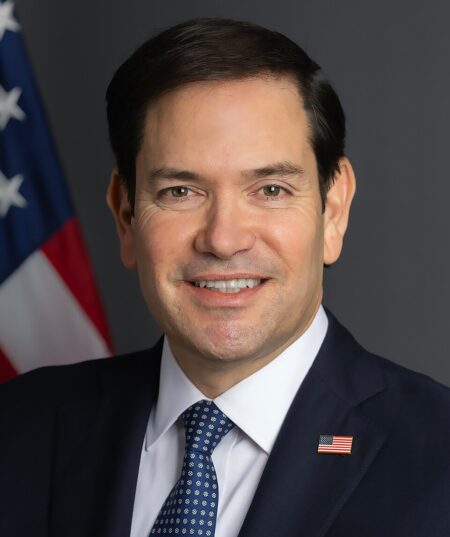US Secretary of State Marco Rubio has said that “a lot of countries” have expressed willingness to join an international security force for Gaza — a central pillar of President Donald Trump’s Middle East peace initiative — but emphasized that Israel must be comfortable with all participating nations.
Speaking during a visit to Israel, Rubio confirmed that discussions over the creation of the International Stabilization Force (ISF) were ongoing, adding that the mission would be deployed “as soon as it possibly can.”
Despite the progress in planning, questions remain over how the ISF could operate without an agreement involving Hamas, which still holds power in Gaza.
Ceasefire Holds but Fragile, Rubio Warns
Rubio praised what he described as “historic” progress under the Israel–Hamas ceasefire, now entering its third week, but cautioned that setbacks were inevitable.
“There is no Plan B,” he said. “This is the best plan — the only plan — and it’s one that we believe can succeed.”
The secretary of state underscored that lasting peace would require preventing a repeat of the October 7, 2023 Hamas-led assault on Israel, in which around 1,200 people were killed and 251 others taken hostage.
“We have to create conditions so that what happened on 7 October never happens again,” Rubio said. “Gaza must become a place that no longer has elements operating within it that threaten Israel — or their own people, for that matter.”
According to Gaza’s Hamas-run health ministry — whose casualty data is regarded as credible by the United Nations — at least 68,280 Palestinians have been killed since Israel’s subsequent military campaign began.
Disarmament of Hamas Central to Trump’s Vision
Rubio reiterated that the Trump administration’s plan for Gaza includes the complete disarmament of Hamas.
“If Hamas refuses to demilitarize, it will be a violation of the agreement — and that will have to be enforced,” he stated. “Hamas cannot govern and cannot be involved in governing the future of Gaza.”
The remarks signal Washington’s insistence that any post-war administration in Gaza exclude Hamas, a group the United States designates as a terrorist organization.
High-Level US Visits Reflect Determination — and Concern
Rubio’s visit capped a week of intensive American diplomacy in Israel, following earlier stops by Vice President JD Vance and other senior officials. The flurry of visits underscores Washington’s commitment to implementing Trump’s Gaza peace plan, as well as its growing concern that actions by Prime Minister Benjamin Netanyahu’s government could jeopardize the fragile progress achieved.
Israeli media have dubbed the effort “Bibi-sitting” — a play on Netanyahu’s nickname — reflecting perceptions that the US is closely managing Israel’s conduct to keep the plan on track.
In recent days, reports have highlighted tensions between the White House and Netanyahu’s government. US officials are said to be increasingly frustrated by Israel’s military operations, particularly after a deadly strike in Gaza last weekend that Israel blamed on Hamas.
The irritation grew after Israel’s parliament advanced a motion toward annexing parts of the occupied West Bank on Wednesday — coinciding with Vice President Vance’s visit — a move that Washington reportedly viewed as a direct challenge to the peace process.
Reports of US Frustration and Pressure on Israel
Israel’s Haaretz newspaper reported that US officials warned they would “not tolerate any surprises from Israel that could jeopardize the ceasefire” and expected advance notice before any new strikes in Gaza. “In practice,” the paper noted, “the US was taking over certain security authorities from Israel.”
Publicly, however, Netanyahu has rejected claims that Washington is dictating policy, describing the US-Israel partnership as one of equals.
Still, analysts say the growing US pressure comes at a politically sensitive time for Netanyahu, who faces mounting international isolation and domestic unrest. With parliamentary elections due by October 2026, he is eager to frame the Gaza conflict as a national victory — a narrative that could be undermined if the US appears to be steering Israeli policy.
Difficult Negotiations Ahead
Both Rubio and Vance sought to project optimism about the ceasefire’s durability, though they acknowledged that the next phase of talks — covering Israel’s military withdrawal, Gaza’s governance, Hamas’s disarmament, and the structure of the ISF — would be complex and prolonged.
“These negotiations are going to be tough,” Rubio admitted. “Seeing the peace plan through is not going to be an easy ride. There will be bumps along the road, but we have to make it work.”
International Security Force Faces Uncertainty
Rubio said a “large number” of countries had already offered to contribute to the ISF but declined to name them.
“Obviously, as you put together this force, it will have to include countries that Israel is comfortable with,” he said, hinting at disagreements over which nations would be permitted to join.
Observers believe Rubio’s remarks referred to Turkey — a key player in the ongoing negotiations — whose potential participation has reportedly been opposed by Israel.
The mission and mandate of the ISF remain unclear. Many countries are reportedly wary of deploying troops without a formal arrangement with Hamas, fearing that their forces could be drawn into direct confrontation with the group’s fighters.
Balancing Ambition with Realities on the Ground
Despite these uncertainties, Washington continues to frame the ISF and wider peace plan as the best chance to stabilize Gaza and prevent future violence.
“The goal is to create conditions where Gaza can be secure, demilitarized, and governed responsibly,” Rubio said. “It’s not going to be easy — but it has to work.”
As diplomatic talks proceed, the success of Trump’s Gaza peace initiative may depend not only on Hamas’s response but also on whether Israel and its allies can align their objectives with Washington’s vision for the region.






